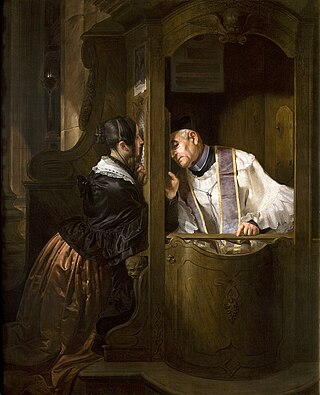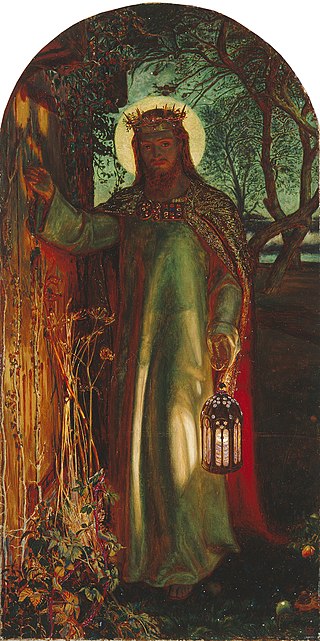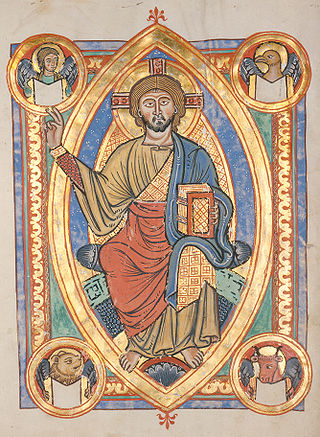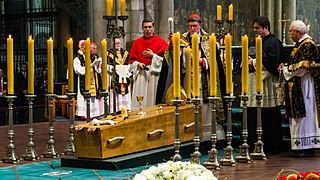
Pow-Wows; or, Long Lost Friend is a book by John George Hohman published in 1820. Hohman was a Pennsylvania Dutch healer; the book is a collection of home- and folk-remedies, as well as spells and talismans.

Pow-Wows; or, Long Lost Friend is a book by John George Hohman published in 1820. Hohman was a Pennsylvania Dutch healer; the book is a collection of home- and folk-remedies, as well as spells and talismans.
It is a translation of a German original, Der lange verborgene Freund, oder, Getreuer und Christlicher Unterricht für jedermann, enthaltend: wunderbare und probmäßige Mittel und Künste, sowohl für die Menschen als das Vieh ("The Long Hidden Friend, [1] or, True and Christian Instructions for Everyone. Comprising Wonderful and Well Tested Remedies and Arts, for Men as well as for Livestock.") The folk magic tradition called "pow-wowing" takes its name from the title of later editions of this book.
Folklorist and novelist Manly Wade Wellman referred to the book and the traditions it embodies (one of which being that if the book is carried on one's person it will act as a shield against bad fortune), especially in his "Silver John" stories such as Who Fears the Devil? .
The book gained some notoriety when it was found in the possession of John Blymire, a Pennsylvania man who was charged with murdering a neighbor whom he believed to have put a curse on him. [2]
The contents of the book are varied. They include such matters as:
Powwow, also called Brauche, Brauchau, or Braucherei in the Pennsylvania Dutch language, is a vernacular system of North American traditional medicine and folk magic originating in the culture of the Pennsylvania Dutch. Blending aspects of folk religion with healing charms, "powwowing" includes a wide range of healing rituals used primarily for treating ailments in humans and livestock, as well as securing physical and spiritual protection, and good luck in everyday affairs. Although the word "powwow" is Native American, these ritual traditions are of European origin and were brought to colonial Pennsylvania in the transatlantic migrations of German-speaking people from Central Europe in the seventeenth and eighteenth centuries. A practitioner is sometimes referred to as a "Powwower" or Braucher, but terminology varies by region. These folk traditions continue to the present day in both rural and urban settings, and have spread across North America.
John George Hohman was a German-American printer, book seller and compiler of collections of herbal remedies, magical healings, and charms. He immigrated to the USA from Germany in 1802, settled in the area around Reading, Pennsylvania, in the Pennsylvania Dutch community, where he printed and sold broadsides, chapbooks and books and practised and instructed in the arts of folk magic and folk religion which became known as pow-wow. He was active between 1802 and 1846.
An Act of Contrition is a Christian prayer genre that expresses sorrow for sins. It may be used in a liturgical service or be used privately, especially in connection with an examination of conscience. Special formulae for acts of contrition are in use in the Anglican, Catholic, Lutheran, Methodist and Reformed Churches.

The epiclesis refers to the invocation of one or several gods. In ancient Greek religion, the epiclesis was the epithet used as the surname given to a deity in religious contexts. The term was borrowed into the Christian tradition, where it designates the part of the Anaphora by which the priest invokes the Holy Spirit upon the Eucharistic bread and wine in some Christian churches. In most Eastern Christian traditions, the Epiclesis comes after the Anamnesis ; in the Western Rite it usually precedes. In the historic practice of the Western Christian Churches, the consecration is effected at the Words of Institution though during the rise of the Liturgical Movement, many denominations introduced an explicit epiclesis in their liturgies.

The following are Roman Catholic prayers to Saint Joseph.

Absolution is a theological term for the forgiveness imparted by ordained Christian priests and experienced by Christian penitents. It is a universal feature of the historic churches of Christendom, although the theology and the practice of absolution vary between Christian denominations.

A Christian child's prayer is Christian prayer recited primarily by children that is typically short, rhyming, or has a memorable tune. It is usually said before bedtime, to give thanks for a meal, or as a nursery rhyme. Many of these prayers are either quotes from the Bible, or set traditional texts.

The Sinner's prayer is a Christian evangelical term referring to any prayer of repentance, prayed by individuals who feel sin in their lives and have the desire to form or renew a personal relationship. This prayer is not mandatory but, for some, functions as a way to communicate with and understand their relationship with God through Jesus Christ. It is a popular prayer in evangelical circles. While some Christians see reciting the Sinner's prayer as the moment defining one's salvation, others see it as a beginning step of one's lifelong faith journey.

"John the Revelator" is a gospel blues call and response song. Music critic Thomas Ward describes it as "one of the most powerful songs in all of pre-war acoustic music ... [which] has been hugely influential to blues performers". American gospel-blues musician Blind Willie Johnson recorded "John the Revelator" in 1930. Subsequently, a variety of artists, including the Golden Gate Quartet, Son House, Depeche Mode, Jerry Garcia Band, The White Stripes, The Forest Rangers, The Sword, have recorded their renditions of the song, often with variations in the verses and music.
Jaroslav Vajda was an American hymnist.

In Catholicism, the morning offering is a prayer said by an individual at the start of the day in order to consecrate oneself to Jesus Christ. The practice has traditionally been associated with the Apostleship of Prayer. While since 1929 the Pope has added a general and a mission intention to the traditional morning offering prayer each month, Pope Francis has restored this to the original, single monthly intention. Over time other forms of the morning offering prayer have been suggested.

Thanksgiving after Communion is a spiritual practice among Christians who believe in the Real Presence of Jesus Christ in the Communion bread, maintaining themselves in prayer for some time to thank God and especially listening in their hearts for guidance from their Divine guest. This practice was and is highly recommended by saints, theologians, and Doctors of the Church.

Vesting prayers are prayers which are spoken while a cleric puts on vestments as part of a liturgy, in both the Eastern and Western churches. They feature as part of the liturgy in question itself, and take place either before or after a liturgical procession or entrance to the sanctuary, as depends on the particular liturgical rite or use which is being observed.
Good Friday Prayer can refer to any of the prayers prayed by Christians on Good Friday, the Friday before Easter, or to all such prayers collectively.

Saint Louis de Montfort's Prayer to Jesus is a reflection of his philosophy of "total consecration to Jesus Christ through Mary", a theme that centuries later influenced the development of Roman Catholic Mariology.

Absolution of the dead is a prayer for or a declaration of absolution of a dead person's sins that takes place at the person's religious funeral.

Spiritual communion is a Christian practice of desiring union with Jesus Christ in the Eucharist. It is used as a preparation for Mass and by individuals who cannot receive Holy Communion.
The 66 Chorale improvisations for organ, Op. 65, were composed by Sigfrid Karg-Elert between 1906 and 1908, and first published in six volumes in 1909. The composition was dedicated to "the great organist Alexandre Guilmant".